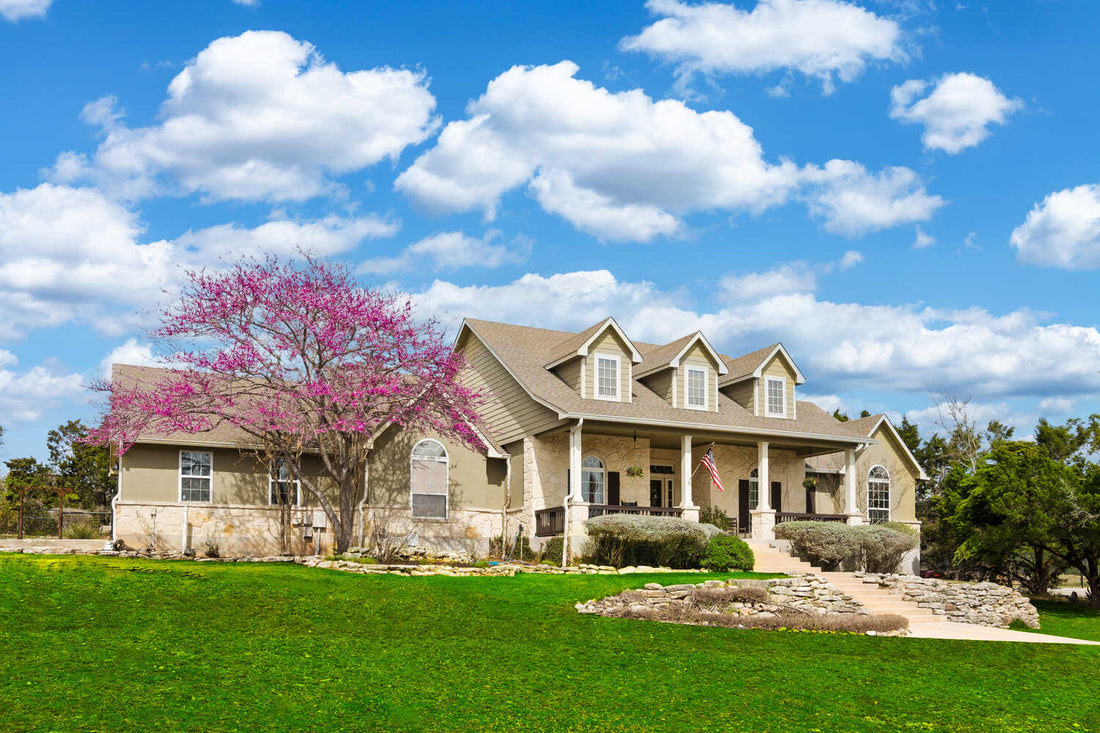Shaded lawns in the South can feel like a challenge, but they don't have to be. If you're tired of patchy, struggling grass under trees or next to buildings, you've come to the right place.
Whether it's trees casting shadows or structures blocking sunlight, picking the best grass for shade in the south is the first step toward creating a vibrant, healthy lawn.
In this article, we'll explore the top shade-tolerant grass options, explain how the southern climate impacts shaded lawns, and share tips for planting and maintaining your grass in low-light areas.
So, if you're ready to transform your shaded spaces into lush, green landscapes, keep reading for expert advice and practical solutions from Lawn Synergy.
What this article covers:
- Challenges of Growing Grass in Shaded Areas in the South
- Top Shade-Tolerant Grass Types for the South
- Preparing Your Lawn for Shaded Areas
- Planting and Caring for Shade-Tolerant Grass in the South
- Enhancing Grass Growth in Shaded Areas
- Alternatives to Grass in Heavily Shaded Areas
Challenges of Growing Grass in Shaded Areas in the South
Why Shade is a Challenge for Southern Lawns
Grass needs sunlight to photosynthesize and grow. In shaded areas, the lack of direct sunlight limits energy production, making it harder for grass to establish itself.
Shade also increases the risk of fungal diseases due to higher humidity and lower airflow, especially in the southern climate.
Impact of the Southern Climate on Shaded Grass Growth
The southern climate, with its hot summers and mild winters, creates both opportunities and challenges for shaded grass growth.
While the warmth encourages growth, high humidity and frequent rains in many areas can lead to issues like increased fungal diseases and poor air circulation, especially in shaded spots.
Excess moisture can cause root rot, and the lack of sunlight makes it harder for grass to recover.

Choosing the best grass for lawn conditions in the South involves selecting shade-tolerant varieties that can withstand these challenges.
Managing moisture levels, improving airflow, and maintaining proper drainage are essential to ensure grass thrives in these environments.
Factors to Consider Before Planting Grass in Shade
Before selecting a grass type, evaluate your yard:
- Light levels: Determine how many hours of sunlight the area receives daily.
- Soil quality: Test soil pH and nutrient content to ensure it's suitable for planting.
- Moisture levels: Shaded areas may retain moisture longer, which can lead to root rot if not managed.
Top Shade-Tolerant Grass Types for the South
St. Augustine Grass
This grass is the go-to choice for many southern homeowners. Known for its broad blades and ability to thrive in partial shade, it handles the heat and humidity of the South exceptionally well. It's also one of the best grass for shade in Florida.
Zoysia Grass
Zoysia is another fantastic option for shady areas. With its dense growth habit, it can withstand moderate foot traffic and is ideal for both sun and shade. It's a great choice for those seeking the best grass for shade and high traffic.
Centipede Grass
Popular in southern lawns, centipede grass is low-maintenance and does well in areas with partial shade. If you're looking for the best grass to mix with centipede, consider combining it with zoysia for improved coverage.
Tall Fescue
Tall fescue is a versatile cool-season grass that adapts well to shade. It's especially effective when used in combination with other grasses, like centipede or zoysia. It's also the best grass to mix with tall fescue in mixed-light conditions.
Preparing Your Lawn for Shaded Areas
Soil Testing and Amendments
Start with a soil test to check for deficiencies and adjust pH levels. Shaded areas often need extra nutrients to compensate for limited sunlight.
Clearing Competing Vegetation
Remove weeds and competing plants that could steal nutrients from your grass. This step ensures your lawn gets the best start.
Pruning Trees to Increase Light Penetration
Trim back tree branches to allow more sunlight to filter through. This not only benefits grass but also improves airflow, reducing the risk of disease.
Planting and Caring for Shade-Tolerant Grass in the South
Best Planting Seasons for Shaded Grass
For most shade-tolerant grasses, early spring or fall is ideal. These seasons provide mild temperatures and consistent moisture.
Tips for Seeding or Laying Sod in Shaded Areas
Prepare the soil thoroughly by aerating and clearing debris. When planting seeds, ensure even distribution and lightly cover with soil to protect them.

Watering Guidelines for Shaded Lawns
Shaded areas typically require less water than sunny spots. Water deeply but infrequently to avoid over-saturating the soil.
Fertilization and Maintenance Tips
Use a fertilizer designed for shaded lawns and apply according to label instructions. Regular mowing at the appropriate height will also help maintain a healthy lawn.
Enhancing Grass Growth in Shaded Areas
Managing Tree Root Competition
Tree roots can compete with grass for nutrients and water. Add a layer of topsoil to improve grass access to essential resources.
Strategies to Improve Soil Drainage
If your shaded area retains water, consider installing drainage solutions like French drains or aerating the soil.
Addressing Patchiness and Weak Growth
Fill in patchy areas with seed or sod. Overseeding regularly can also improve the density of your lawn over time.
Alternatives to Grass in Heavily Shaded Areas
Ground Covers for Low-Light Conditions
For areas where grass struggles, ground covers like clover or moss can provide greenery without requiring much sunlight.
Combining Grass with Hardscaping or Mulch
Incorporate walkways, pavers, or mulch to reduce the size of shaded grass areas and enhance the aesthetic appeal of your yard.
Creating a Shade Garden
Plant shade-loving flowers, shrubs, and perennials to transform problem areas into beautiful garden spaces.
Conclusion
Transforming a shaded lawn in the South into a lush, vibrant landscape may seem challenging, but with the right approach, it's well within reach.
Selecting the best grass for zone 8a or even the best grass to grow in Arizona starts with understanding your yard's unique needs and using high-quality products designed for success.
At Lawn Synergy, we take pride in offering professional-grade solutions enhanced with extra nutrients to meet the demands of southern climates.
Our expertise, combined with your dedication, creates the synergy needed to make your lawn the envy of the neighborhood.
Ready to get started? Explore our website today to find the perfect products for your lawn and let's make your shaded lawn thrive together.
If you want to learn more, check out these articles below:
- Best Grass for Southern California
- Best Grass for Shade in Oklahoma
- Best Time to Plant Grass Seed Indiana
- Best Time to Plant Grass Seed Illinois
- Best Time to Plant Grass Seed in Virginia
- When to Plant Warm Season Grass
- When to Plant Zoysia Grass
- Best Time to Plant Grass Seed in Wisconsin
- Best Time to Plant Grass Seed in SC
- Best Tall Fescue Grass Seed
- Best Grass Seed for Clay Soil
- Best Grass Seed Sun and Shade
- Best Grass Seed to Plant in Fall
- Best Grass Seed for Rocky Soil
- Best Grass Seed to Plant in Spring


